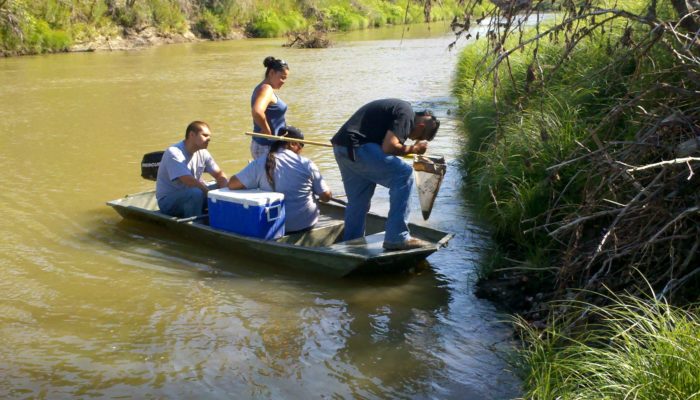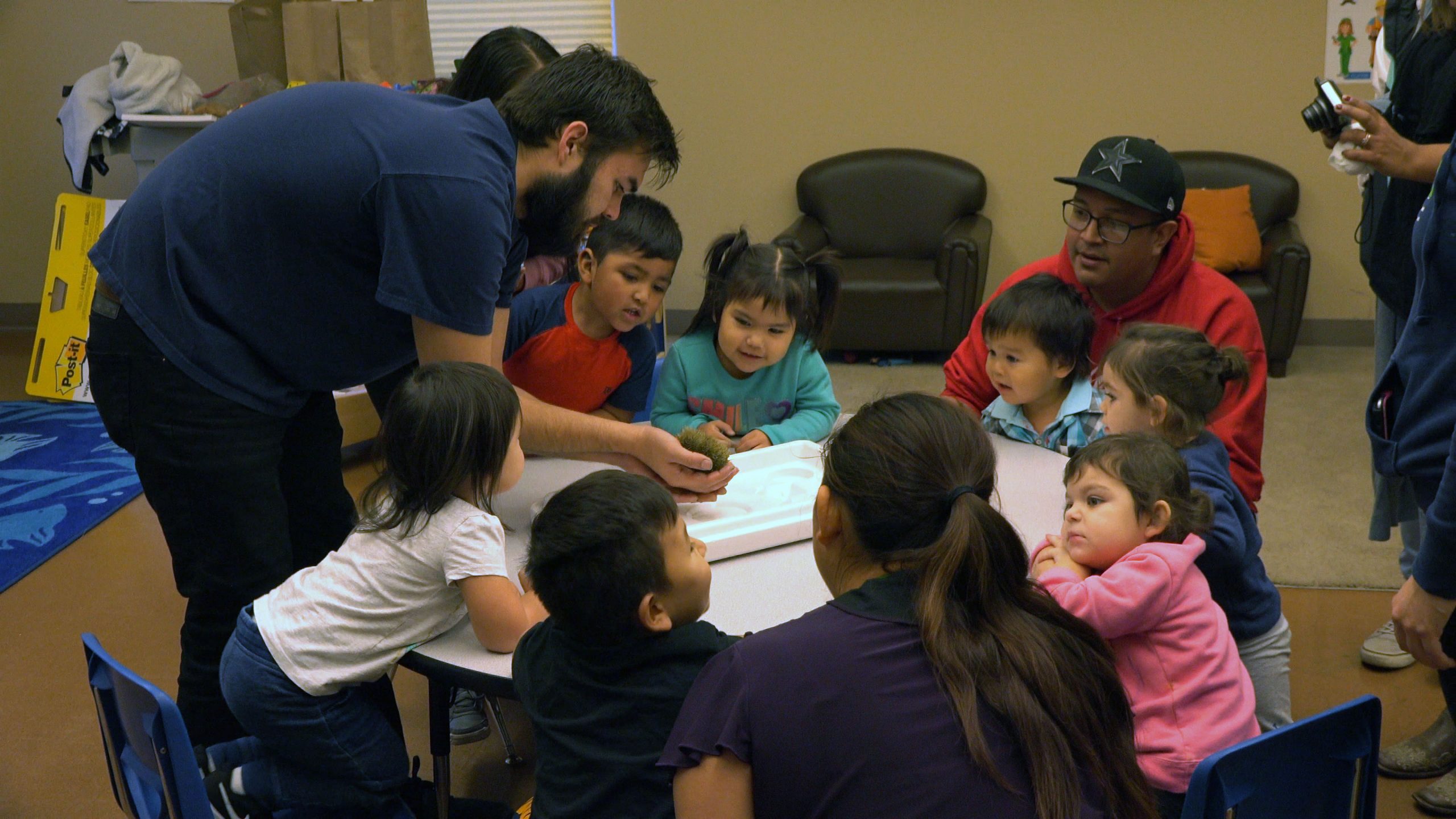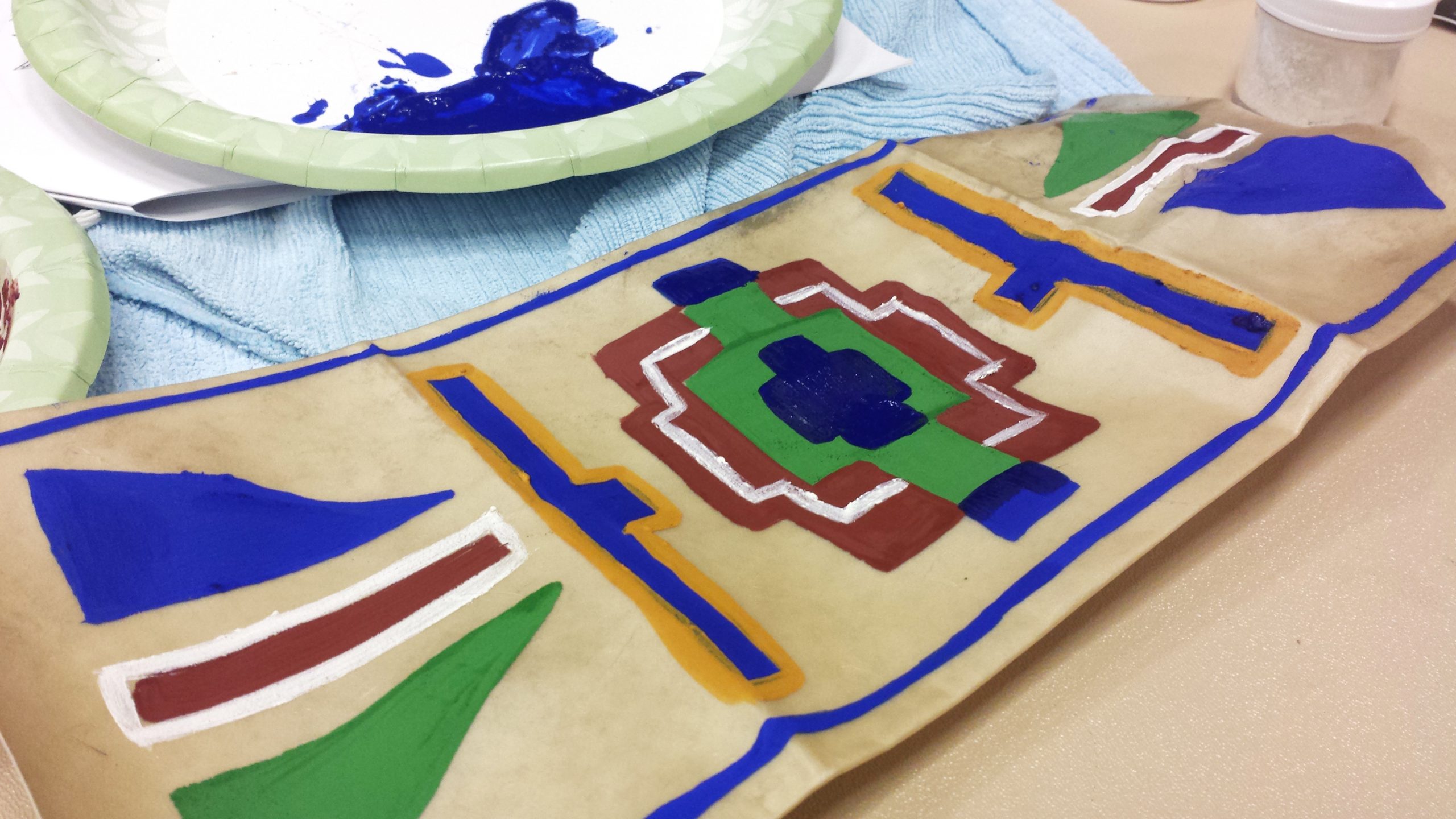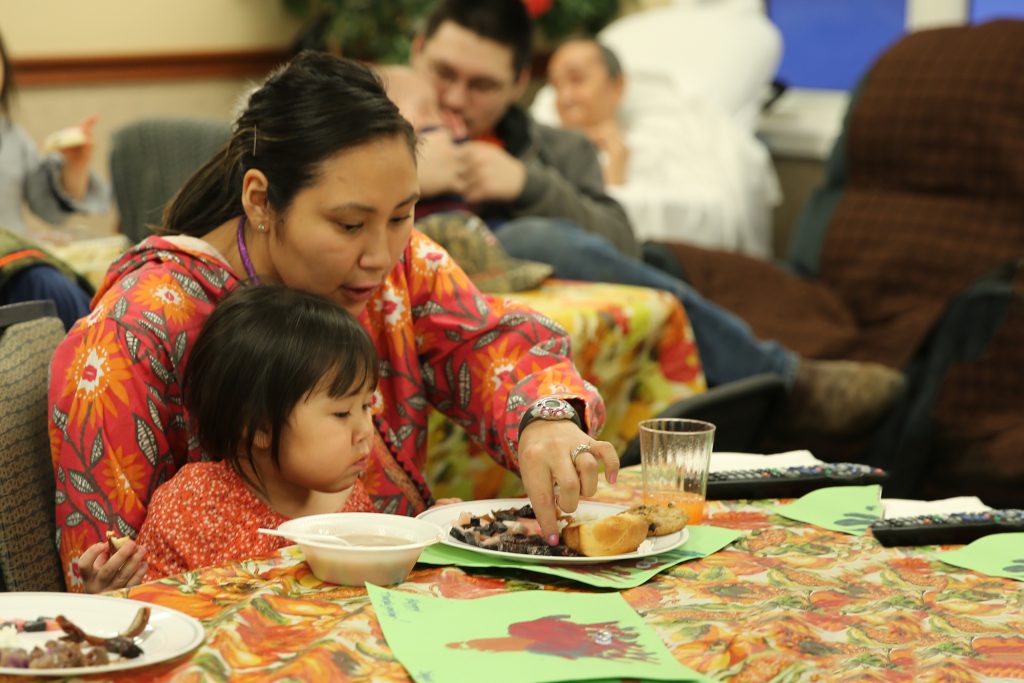Strategic Planning and Building
TCU ECE Family Engagement
2020 – 2021

About The Program
The Strategic Planning and Building TCU ECE Family Engagement program involved a $200,000 grant that supported 7 TCUs with family engagement during the COVID-19 pandemic, as well as supported the development of a strategic plan for the next 1, 4, and 7 years of the American Indian College Fund’s Indigenous Early Childhood Education (IECE) programming.
TCU grantees demonstrated that the funding supported families and children during the pandemic through several family engagement activities:
- Virtual story time facilitated by community elders
- Trapping and harvesting demonstrations
- Crafting activities such as beading mask holders
- Cooking meals together
- Virtual workshops such as budgeting and couponing for parents
Grantees also used the funding to cover the cost of winter coats for children, gift cards for families’ emergent needs, and wellness and learning packages. The program also offered webinars to the TCUs on family engagement and faculty wellness.
The IECE strategic planning process recognized the changing social and economic landscape in our place-based institutions and the value of continued support of lifelong, intergenerational learning in tribal communities. Native families, children, and ECE teachers and students play a vital role in all of this. The College Fund’s IECE strategic plan was developed through consultants, and interviews were conducted with 19 TCUs, Early Childhood Education (ECE) funders, and College Fund Board members and staff.
The Strategic Planning and Building TCU ECE Family Engagement program was followed by a $100,000 food security grant to support Native families’ food needs. Families were given gift cards for groceries, distributed by the ECE programs of 26 TCUs.
Program Gallery

Grantees

Fond du Lac Tribal and Community College
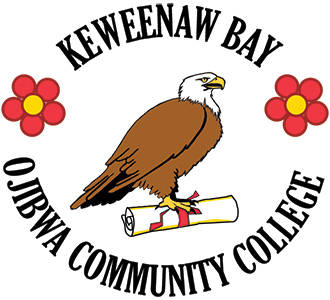
Keweenaw Bay Ojibwa Community College

Little Big Horn College

Northwest Indian College

Salish Kootenai College

Sitting Bull College

Southwestern Indian Polytechnic Institute
Related Blogs
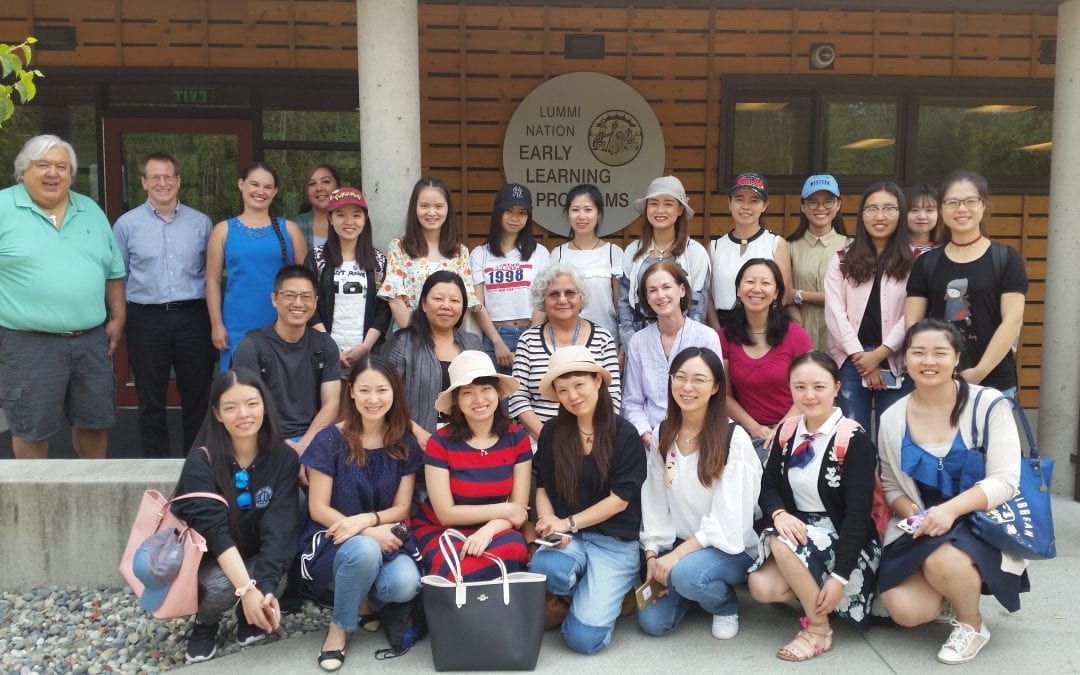
Hosting Early Childhood Educators from Southwest University in Chongqing, China
Northwest Indian College’s (NWIC) Early Childhood Education (ECE) degree program and Restorative Teachings Initiative hosted 20 visitors from Southwest University in Chongqing, China, which included ECE faculty and teacher candidates from Southwest University and practicing teachers from their partnering ECE programs.
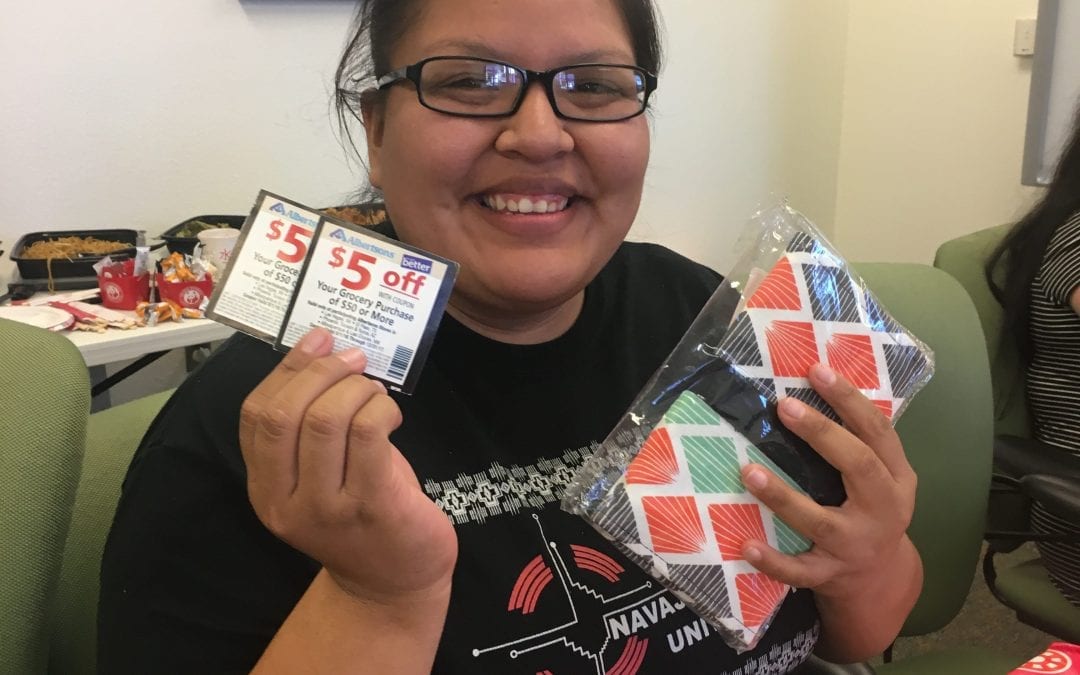
SIPI Parents Learn Couponing, Family Budgeting Strategies
During brainstorming sessions and meetings as part of SIPI’s Restorative Teachings Initiative, parents of children in the program identified couponing as a strategy to support budgeting and financial stability within their families. A major goal of SIPI’s initiative is to support Native families through educational opportunities that build their capacity to become increasingly financially stable
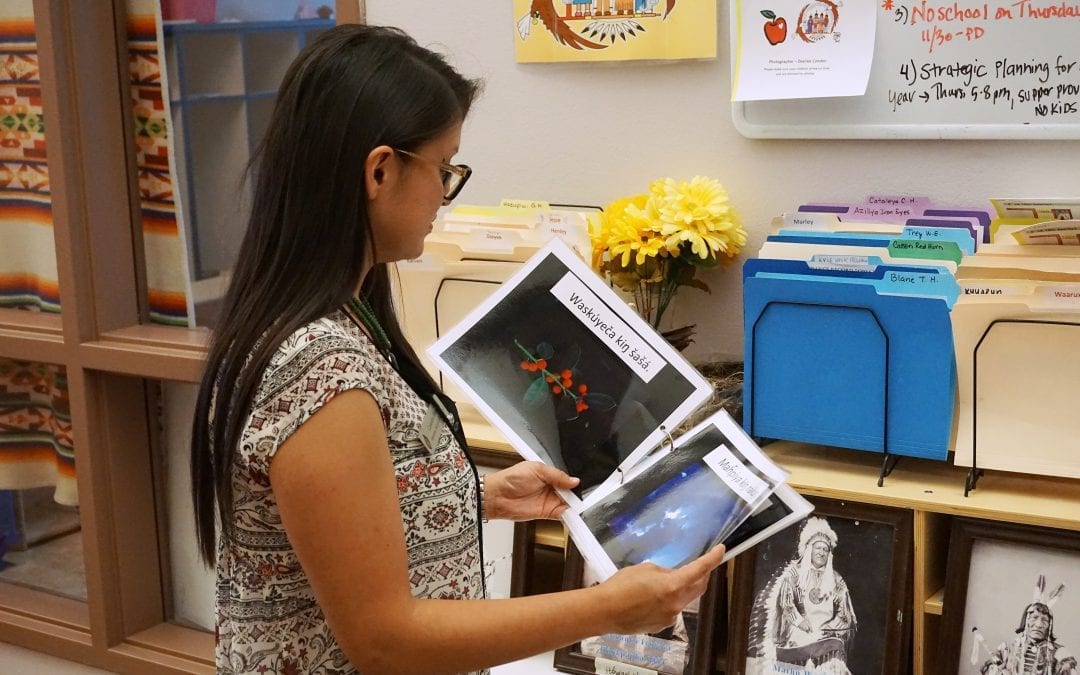
From Student Intern to College Fund Employee: Cassandra’s Journey
Cassandra Harden (Diné) was focused on a career in early childhood education when she first learned about internship opportunities with the American Indian College Fund (College Fund). While she studied as a student at tribal college Southwestern Indian Polytechnic Institute (SIPI) in Albuquerque, New Mexico. Cassandra got involved in SIPI’s early childhood program, working on the College Fund’s Wakanyeja “Sacred Little Ones” and Ké’ Early Childhood Initiatives, as a student intern.
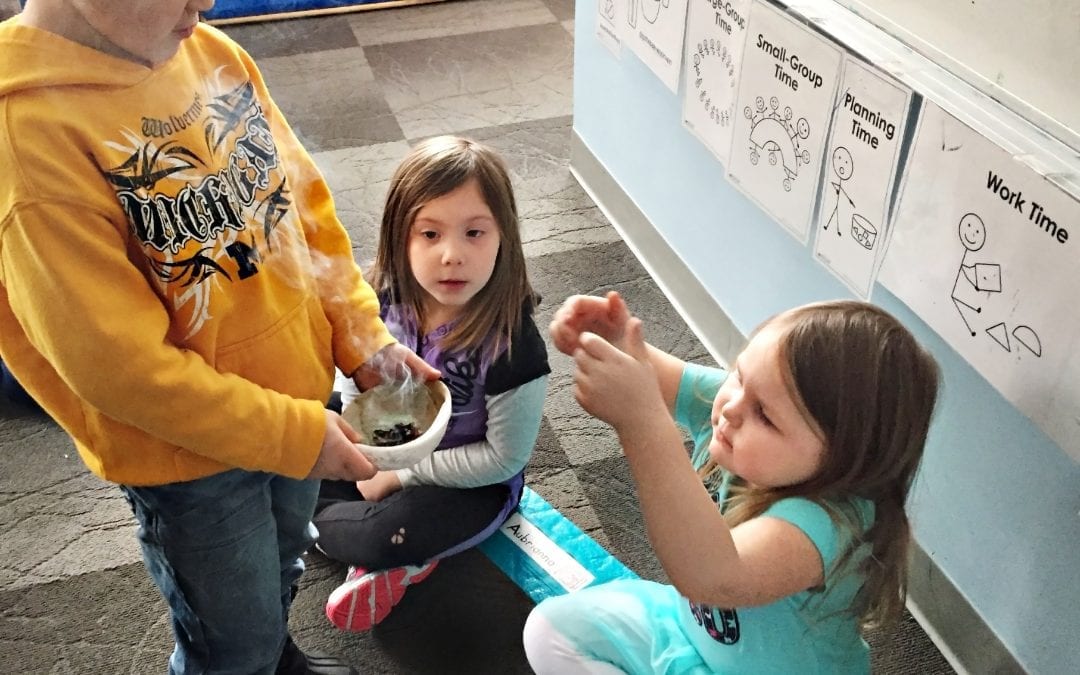
KBOCC: Building the Bridge
Tribal elders are an integral part of the Restorative Teachings program, serving as an important link from past to future, and Keweenaw Bay Ojibwa Community College’s program is no different (KBOCC). When the tribal elder who serves as the program’s cultural consultant was interviewed for the position, honesty, integrity, and respect emanated from him as he looked at each of the program’s employees in the eyes and told the stories of the Ojibwe past.




